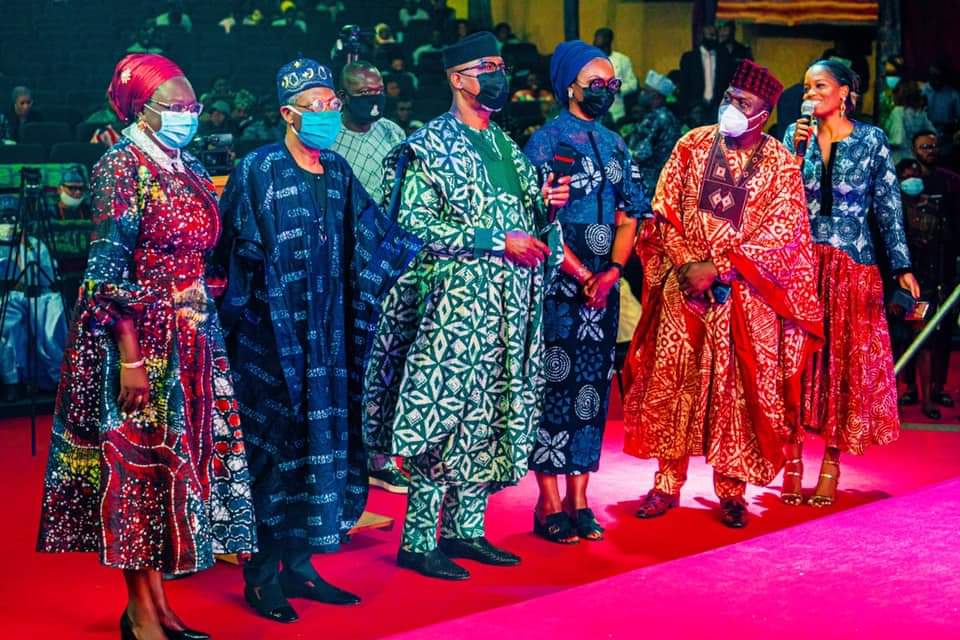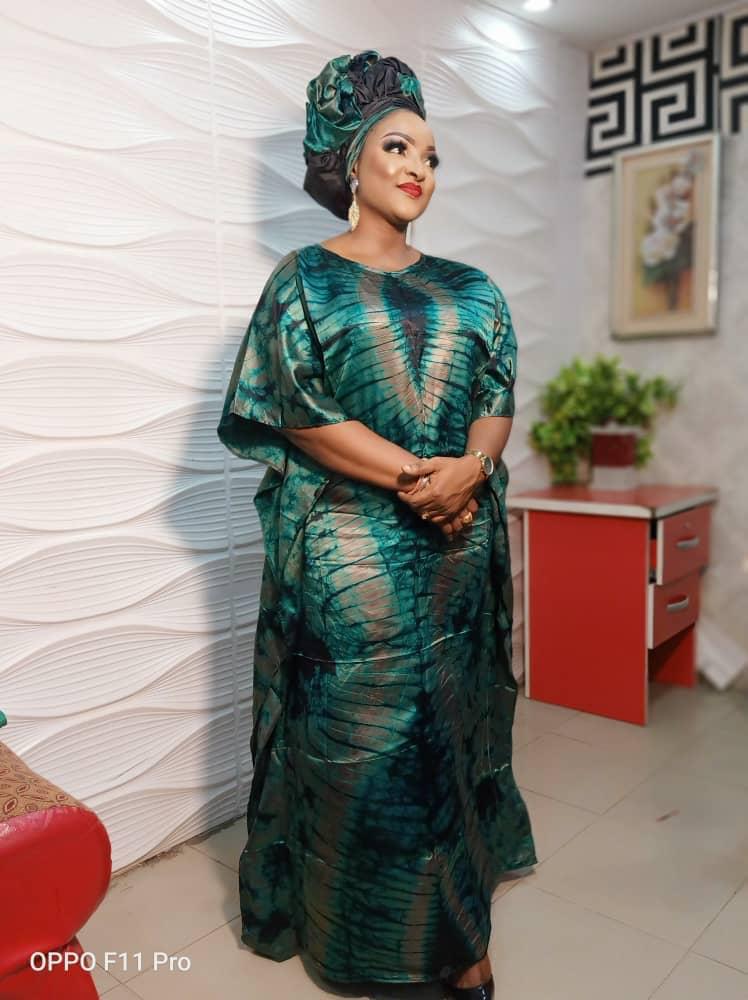Adire Ogun: Of style, colour, uniqueness and global acceptance
By Oluwaseun Boye
Culture is the characteristics and knowledge of a particular group of people, encompassing language, religion, cuisine, social habits, music and arts. It plays an important role in the lives of individuals and the society as a whole.
Besides, it helps to accumulate, control and organise the human experience and it is basically what makes a person human.
While narrowing it down to Nigeria, cultural values differ from state to state, hence culture is multi-ethnic in nature, just as her people. The people of Nigeria love their traditional languages, music, dance and literature.

The Country comprises of three large ethnic groups, Yoruba, Hausa-Fulani and Igbo amongst other ethnic groups. Thus, culture in Nigeria is most positively multi-ethnic which gives a lot of value to different types of arts such as: ivory carving, grass weaving, wood carving, leather and calabash. Others include Pottery, painting, cloth weaving glass and metal works.
In the words of Rachel Zoe, an American Fashion Designer, “Style is a way to say who you are without having to speak”.
Nigerian clothing is unique and attractive. It includes lace, jacquard, adire, and ankara and so on. Nigerian clothing for women, include buba, kaba, iro, gele and iborun or ipele. And clothing for men include buba, fila, sokoto, abeti-aja and agbada. Other than traditional attire, the people also wear Western apparels as well.
Bringing it down to Abeokuta, the Ogun State Capital. The city is unique in the production of tie and dye, popularly known as “Adire”.
According to Wikipedia, Adire is the indigo-dyed cloth made in South West Nigeria by Yoruba women, using a variety of resist-dyeing techniques.


The earliest pieces of this type were probably simple tied designs on cotton cloth handspun and woven locally.
However, in the early decades of the 20th century, new access to large quantities of imported shirt material via the spread of European textile merchants in Abeokuta and other Yoruba towns caused a boom in these women’s entrepreneurial and artistic efforts, making adire a major local craft in Abeokuta and Ibadan, attracting buyers from all over West Africa.
By and large, Abeokuta is the capital of adire-making in Nigeria. Adire dyeing began in Abeokuta when Egba women from Ibadan returned with the innovation. The cloth’s basic shape became that of two pieces of shirting material stitched together to create a women’s wrapper cloth.
New techniques of dyeing thereafter developed.
The tradition of indigo dyeing dated back to centuries in West Africa. The earliest known example is a cap from the Dogon kingdom in Mali dating to the 11th century, dyed in the “oniko” style.
However, by the end of the 1930s the spread of synthetic indigo and caustic soda and an influx of new less skilled entrants caused quality problems and a still-present collapse in demand. Though the more complex and beautiful starch resist designs continued to be produced until the early 1970s, and despite a revival prompted largely by the interest of US Peace Corps workers in the 1960s, never regained their earlier popularity. In the present day, simplified stenciled designs and some better quality oniko and alabere designs are still produced, but local taste favours “kampala” is also known as adire by a few people.
Adorning ‘Adire’ fabrics, as ways of dressing, has helped in promoting the art and culture especially when people travel abroad, it not only showcases the rich cultural values of Adire both within and outside Nigeria, it brings out the aesthetic values wherever they are showcased.
More importantly, Adire also serves as a significant connection between present-day and old-time forms of dressing. This is evident through the type of events in which Adire fabrics or prints can be worn.
In her contribution, a leading merchant in Adire business based in Abeokuta and also a proud daughter of the land, Mrs. Bolanle Aderibigbe, sharing her experience said her love for Adire fabric made her delve into the business over a decade ago.
According to her, “No doubt, there is an emerging market for this wearable work of Art called ADIRE as it is fast gaining both local and international attention.
“One thing that has propelled me to succeed thus far in the bussiness apart from international patronage is the fact that personally, it has become my trademark, I proudly sew the fabric into beautiful pieces and adorn it everywhere such as the office, casual outings and ‘owambe’parties.
“Now that the world has gone digital, I am able to harness that opportunity, and we rely on social media platforms (@ESTERLOB) and this of course has helped out, though it has its own challenges which include Lack of trust by intending customers, lack of confidence in the quality of fabric to be delivered amongst other factors. However, with various testimonials from our customers and foreign clients, we were able to surmount that hurdle. Let me also use this medium to commend the government at all levels in the area of adopting the wearing of Adire as an official apparel,” she stated.
In furtherance to efforts aimed at promoting the values of Adire, Ogun State Government under the leadership of Prince Dapo Abiodun recently unveiled the launch of adire ogun digital market The Governor, Prince Dapo Abiodun, while addressing stakeholders emphasized the need to make adire a national attire for athletes who take part in international sporting activities.
“Our Foreign Missions could also adopt the Adire fabric, as a cultural symbol that will further project our rich culture to the outside world. Same thing could also be done by our Federal Ministry of Youth and Sports, by making the ceremonial dress of our athletes from local fabrics such as our Adire. This will go a long way in promoting the local contents and give expression to President Muhammadu Buhari administration’s ‘produce what we use’ and ‘grow what we eat’ policies,” the governor stated.
The Abiodun-led Administration in Ogun State will no doubt turn around the world of Adire for good, by making it a global platform for the marketing and distribution. And this will also serve as a meeting-pot for participants, to provide opportunities for a wider coverage of the market, for people to reach out to vendors and transact businesses by logging into the Adire Digital Mall.
Consequently, as it is fast becoming an important aspect of everyday life, the government is not left out in this move, top government functionaries in the state now wear Adire on Fridays, and with future plans to make Adire part of uniform (in both public primary and secondary schools).
This will further empower more people and also expand adire business, as well as making it more prominent in the grassroots areas when traditional dressing is incorporated into contemporary clothing amongst the younger generation in the state. This can be adopted by other south west states in Nigeria as mode of school dressing.
Aside this, it would also provide job opportunities for the teeming youths who are interested in investing in adire production, sewing and exporting to other countries.
Oluwaseun Boye is an Information Officer with the Ogun State Ministry of Information and Strategy and writes via [email protected]




